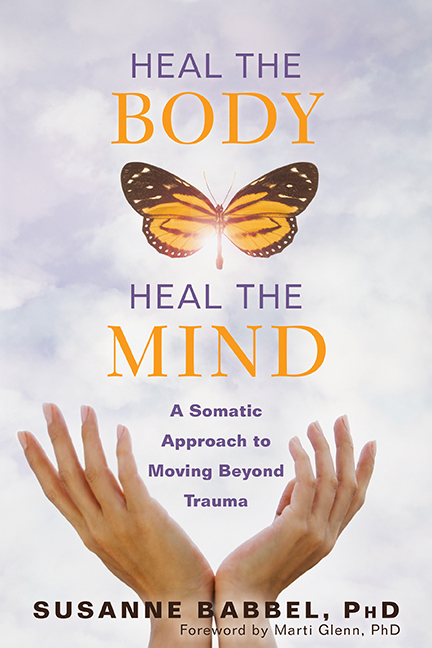By Susanne Babbel, PhD, author of Heal the Body, Heal the Mind
Have you started to look at familiar fears, feelings, and behaviors differently now that you realize they may stem from your trauma and not always convey the full truth? If so, you may have had a vuja de moment. Comedian George Carlin coined the term “vuja de” to mean the opposite of the French idiom “déjà vu” (Bailey 2012). Déjà vu literally means “already seen,” and conveys an inexplicable feeling of familiarity, as if the moment being experienced has already happened. Vuja de, in contrast, describes experiencing something familiar as if it were strange and unknown. This can happen, for example, when you suddenly understand a certain feeling or situation entirely differently.
This new lens can bring clarity to your personal story and catalyze changes in your circumstances. New, positive meaning may flow into your life. These new feelings and possibilities can be both exciting and frightening because they are unfamiliar. You may feel confused by this new reference point. You may experience grief and anger—at yourself or others—because you were trapped in the old ways for so long. Stay with your growing confidence and your openness to healing, and continue to overcome your tired, old, limiting beliefs. As you do, negative reactions can and usually will transform into positive connections with yourself and the people around you, creating conditions for more peace within. You have the opportunity—now and always—to explore and take on new ways of feeling and being, and to find different aspects of meaningfulness in life as a result.
Everything in our lives—events, people, places—offers the opportunity to gain awareness and advance our personal growth. Both through living with and working with your traumatic experiences, you have already come a long way, at times under extremely adverse circumstances. In addition to courage and endurance, healing and recovery require a number of qualities that you may have gained in the process of suffering: wisdom, strength, resilience, humility, and much more. Don’t get me wrong: I’m not saying that trauma is “good” for anyone. Rather, I am noting that we can derive value from many experiences by assimilating them. In my own case, if not for my efforts to heal from trauma’s effects, I wouldn’t have taken the path in life that I did, personally or professionally. It is a journey I would not have gone on otherwise.
Even though you may have struggled a great deal and may not know when your suffering will end, your life can turn around for the better. Some people find new meaning in life after surviving a traumatic accident, natural disaster, or near-death experience. Others have deep realizations when they are chronically or acutely ill. Some people find meaning only after struggling with the impact of trauma and consciously trying to heal for some time. This search for meaning and healing often continues as we strive to understand life’s mysteries and our own ways of being. Know that, as a result of your journey to heal from trauma, you can gain greater awareness, more love and appreciation for life, a spiritual connection, and an improved approach and outcome to life.
 Susanne Babbel, PhD, is a licensed psychotherapist specializing in trauma. She maintains a private practice in San Francisco, CA.
Susanne Babbel, PhD, is a licensed psychotherapist specializing in trauma. She maintains a private practice in San Francisco, CA.


 2024 Peace Playbook: 3 Tactics to Avoid Clashes with Your Partner
2024 Peace Playbook: 3 Tactics to Avoid Clashes with Your Partner